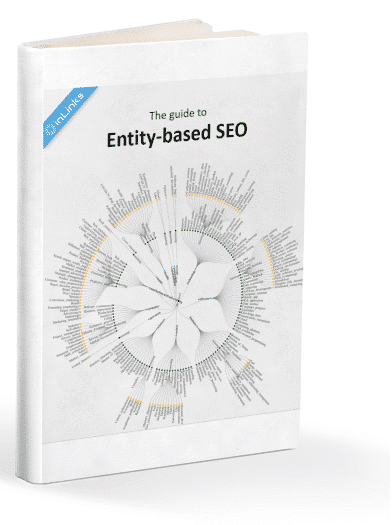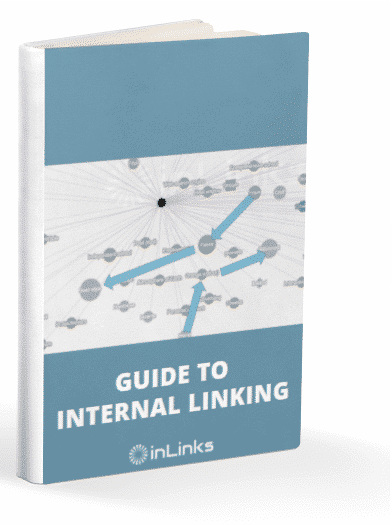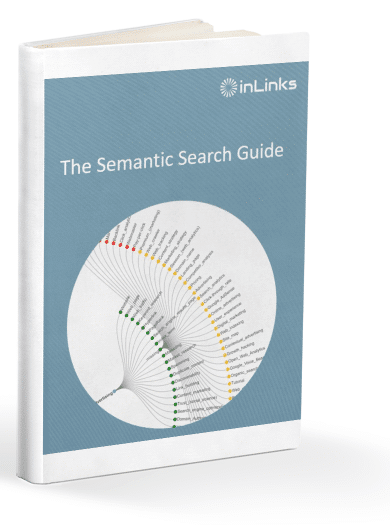Why is the NLP API at Inlinks worth talking about?
The InLinks NLP API is a powerful software that will help your content rank higher than your competitors. This post provides a comprehensive insight into how InLinks analyzes your language, and why it is better than other NLP API’s. Learn how entities will change the way you write articles to be machine-readable. Also, learn how our unique knowledge graph allows you to optimize content more effectively than Google’s API.
What is the InLinks NLP API?
The InLinks API is specifically designed to be overly aggressive at extracting entities from a corpus of text. This software does not rely on keyword extraction alone which may recognize ‘Tower Bridge’ as a tower and a bridge. Instead, it sees the meaning of an entity as a human understands language complexities through context. InLinks NLP API understands what you want to achieve, ensuring the correct entities are communicated to Google. This is possible because of InLinks’ massive and ever-growing knowledge base. Your writing will be understood in the way you intended it to by Google, not the way Google wants to interpret it.
Our software first understands broad topics and meanings, using sentiment analysis and syntax analysis, to construct your knowledge graph. This is a map structure of all of the relevant concepts in your writing which work together to provide information on things you want Google to understand. It will create a schema for your website and internally links ideas automatically. This means you will have access to a customized, structured map of relevant entities based on your cornerstone content. As a result, you will have an SEO point of reference while you write exciting blogs, news, product releases and more!
Why is this useful?
It understands user intent and offers it to you in a readable format; for example, as I am writing this I know that users are looking for information when they type in NLP API (the desired meaning) as opposed to branded or purchasable things. This tool will ensure your content becomes far more relevant to a user’s needs. InLinks will help you create cornerstone content, the pages and articles you want to rank the highest, using topics that Google will recognise in a more meaningful way than before. It takes the top 10 highest-ranking pages related to your topic. It compares what you’re writing to test pages and generates optimal content ideas.
These include:
- Suggested word count
- Recommended topic frequency
- Relevant questions
- Appropriate headings
- Synonyms for entities
- content structure
- Search engine understandability score
- Readability score
- Statistics regarding SERPs orientation
This will help you create powerful, exciting and machine-readable text that will trump your closest competitors. You can read more about how they work here: https://inlinks.com/help/seu/.
Why Do Entities Matter for SEO?
In general, an entity (or named entity to be more precise) designates a single, well-defined thing or concept which can be linked to a knowledge graph. Unlike a keyword, which is ultimately just a collection of letters specific to a language, an entity carries meaning and is independent of the language and of the synonymous keywords that designate it. The InLinks state-of-the-art natural language processing API reads your content and breaks it down into its constituent “Entities” (often called “Topics” in Google’s documentation). Entities are usually distinguished as anything that has its own Wikipedia page. Although there may be instances where other entities exist, our output generally describes entities in term of Wikipedia topics.
These entities make the basis of the knowledge graph, and you will be able to see just how they link together through cloud computing to create the content you need. IBM (the computer company) have invested heavily in NLP and use their powerful “Watson” AI machines to find patterns within entities. This shows that the emphasis to really understand entities is a valuable skill for content writers, and one you could start learning for free with inLinks!
To understand a little bit more on what entities are and how they fit into this NLP API, read here: https://inlinks.com/insight/entity-based-seo/
Why use Inlinks’ NLP API instead of Google’s?
The InLinks NLP API is much more powerful at data modelling and extracting data relating to named entities than Google. This is because it returns ALL the entities on the page, whereas Google only reports entities that it deems relevant concepts. Without our independent API, you are simply getting a report of what Google knows, not what it doesn’t know. InLinks will help Google understand your writing and make it stand out. In fact, the InLinks API ALSO runs Google’s API simultaneously, creating a clear gap analysis for you. Not only will you see that InLinks API returns many more entities, but that the links relating to named entities will be far more comprehensive as personalization will occur instead of trying to make you fit into what Google thinks is best. This will allow you to compare the difference all in one place!
InLinks combines the SERPs with its knowledge graph to give you awesome content around the key aspects you want to be recognized. It analyzes the highest ranked pages. Then, it breaks up every page into topics within a knowledge graph. This culminates in a unique knowledge graph, helping you write content with words that Google will recognize. The software development of the NLP API has come a long way, and the knowledge graph is growing every day.
To learn more about schema and what this powerful software can do for you, please see this Introduction To inLinks.
What do I need to use the Inlinks API?
This powerful, state-of-the-art application software is available to InLinks customers who have an account at level 4 and above. If you would like more information on how this works, and what this software can do for you and your business, please get in touch for a training session. You can book a call with industry expert Dixon Jones for a video call to explain how to optimise your inLinks experience. Once you become an inLinks member you will have constant support through a plethora of online materials to help you navigate this NLP API. Need to understand how the software works? A comprehensive tutorial built into the application.
About Dixon H Jones, FRSA, MBA, BA(Hons).
A world-renowned speaker on search engine algorithms and information retrieval and holder of the Lifetime Achievement Award for services to the search community. Dixon is a moderator on Webmasterworld. He spoke or published at Search Engine land, State Of Search, WordTracker, Authoritas, SE Roundtable, Brighton SEO, Tedx, Pubcon, and many more.
The NLP API is available to all customers of inlinks.net with a level 4 account or higher. If you feel Google’s NLP API is too limiting, try our new NLP API.




Leave a Reply
Want to join the discussion?Feel free to contribute!